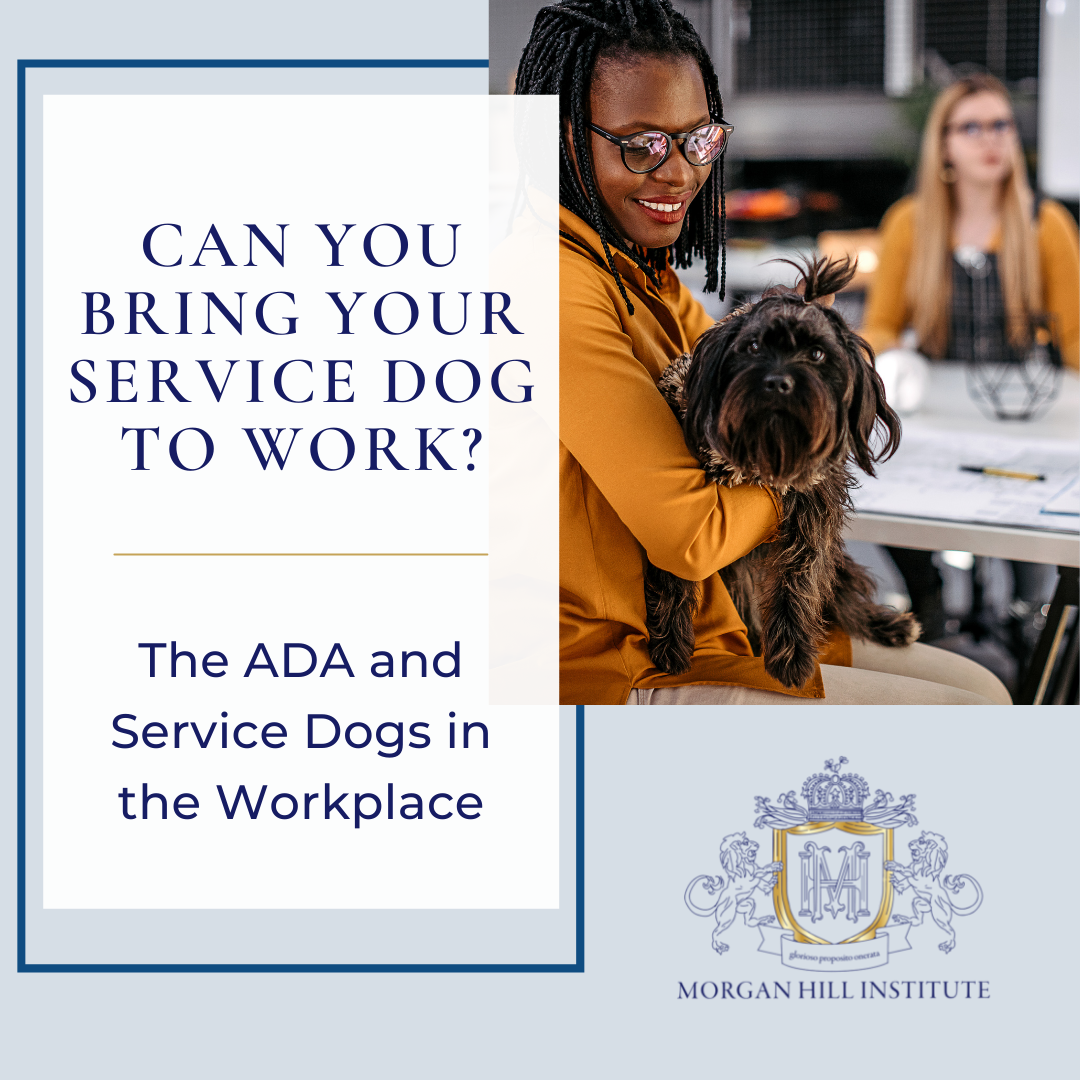
Fake Service Dogs - How They Hurt People With Disabilities And What To Do About It
As the number of types of service dogs has increased, it has also led to confusion by the public of what it means to be a true service animal. When fake service dogs misbehave it puts the reputation of real service dogs in jeopardy by alienating business and public support. Fake service dogs also pose a physical danger to people and legitimate service dogs when they act aggressively towards people or other animals. Here’s our guide on what to do when you spot a fake service dog.
What Do Psychiatric Service Dogs Do? What You Need to Know About Psychiatric Service Dogs
Psychiatric service dogs (PSD) are a specific type of service animal trained to help individuals with a psychiatric condition function more fully. Instead of providing emotion support like an emotional support dog, a PSD performs tasks to enable to handler to function in ordinary ways. The handler must have a prescription from a licensed mental health professional certifying that the dog is needed to assist with a major life task.
Service Dogs 101 | Everything You Need to Know About Service Dogs
Our Service Dogs 101 Guide tells you everything you need to know about service dogs, including what is a service dog, what makes a good service dog, what breeds are the best service dogs, how much a service dog costs, whether or not insurance covers them, and the different types of service dogs: Visual Assistance (Seeing Eye) Dogs, Hearing Assistance Dogs, Mobility Assistance Dogs, Psychiatric Service Dogs, Medical Alert Dogs, Diabetic Alert Dogs, Seizure Alert and Response Dogs, Cardiac Alert Dogs, Oncology Alert Dogs, and Allergy Detection Dogs.
Emotional Support Dogs, Therapy Dogs, & Service Dogs - What’s The Difference?
People often confuse service dogs, therapy dogs, and emotional support dogs (animals). The differences are actually quite important because they determine the legal protection and right to public access for the handler.
Service Dogs and the Law: What Federal Laws Protect Service Dogs And Their Handlers’ Rights?
Individuals with disabilities are protected by multiple laws, most notably The Americans with Disabilities Act (ADA). The ADA and related legislation provide a legal framework for service dogs in the workplace, housing, and travel. The three main federal laws covering service dogs are the Americans with Disabilities Act, the Fair Housing Act, and the Air Carrier Access Act. These laws ensure individuals with disabilities have equal access to public services, housing, and travel.
Coronavirus and the Future of Vocational Rehabilitation
Covid-19 has infected more than 166 million people worldwide. Most have recovered and resumed their lives without issue, but some are experiencing long-lasting damage that impacts their ability to work. They are now experiencing symptoms such as nerve damage, difficulty with walking, loss of smell, coughing fits, and trouble breathing. Vocational rehabilitation counselors will increasingly need to assist employers and employees adjust to debilitating changes.
The ADA and Service Dogs In The WorkPlace: Can You Bring Your Service Dog To Work?
Title I of the Americans with Disabilities Act prevents workplace discrimination. According to the ADA, a request by an employee to bring a service dog into the workplace should be handled like any other reasonable workplace accommodation. Service dogs do come with some unique requirements, but will not be a workplace disruption and like other reasonable accommodations, allow the employee with a disability to complete their job requirements.
Micro-Volunteering to Help Others: Apps, Ideas, and Other Resources
Micro-volunteering is a low commitment approach to supporting non-profits through easy and flexible ways, usually by computer or cell phone. Sometimes there is no commitment to the organization or obligation to repeat volunteer activities. The activities are typically quick and simple to complete.








